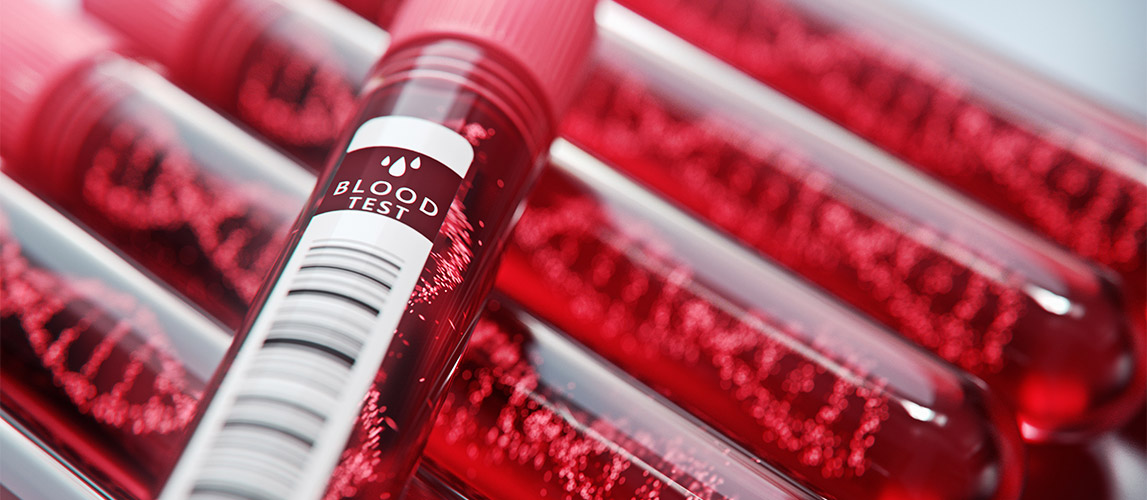Blood Chemistry Reference

Lipid Profile
Total cholesterol | Triglycerides | HDL (good cholesterol) | LDL (bad cholesterol)
Panel of blood tests that serves as an initial broad medical screening tool for abnormalities in lipids, such as cholesterol and triglycerides. These tests check for the risk of cardiovascular disease.
Kidney Function Test
Urea I Creatinine
To evaluate the health of your kidneys; to help diagnose kidney disease; to monitor treatment for kidney disease.
Fasting Blood Glucose
Used to diagnose and monitor diabetes.
HgbA1c
To check the control of diabetes.
Liver Function Test
Total and direct bilirubin I Albumin I Total protein and globulin I ALP I Transaminases: AST, ALT & GGT
Used to help diagnose and monitor liver disease or damage.The tests measure the levels of certain enzymes and proteins in your blood.
Minerals
- Uric acid: to help diagnose gout, evaluate risk of having kidney stones. Checking levels to see if medicine that decreases uric acid levels is working, and monitor levels in people who are undergoing chemotherapy or radiation therapy.
- Phosphate: check for condition called ketoacidosis which affects diabetic people. It is also used to help diagnose digestive system disorders that interfere with the absorption of phosphate, calcium and magnesium.
- Calcium: to screen for, diagnose, and monitor a range of conditions relating to the bones, heart, nerves, kidneys, and teeth. The test may also be ordered if a person has symptoms of a parathyroid disorder, malabsorption, or an overactive thyroid
STDs
- VDRL (screening test for syphilis)
- HIV (AIDS)
Hepatitis
Hepatitis is an inflammation of the liver that is most commonly caused by viruses but may also be due to chemicals, drugs, alcohol, inherited diseases, or autoimmune disease.
- HBsAg: to screen for or diagnose a hepatitis B virus (HBV) infection.
- Anti-HBs: to determine if the vaccine against hepatitis B has produced the desired level of immunity; may also be used to guide treatment and assess its effectiveness.
- Anti-HCV: to screen for and diagnose a hepatitis C virus (HCV) infection and to monitor treatment of the infection.
- HAV IgG/IgM: To screen for and diagnose a hepatitis A virus (HAV) infection.
- IgM antibody: is the first antibody produced after infection. This is then followed by IgG.
- Anti-HBc IgM: indicates recent hepatitis B infection is possible.
- Anti-HBc IgG: indicates prior hepatitis B infection.
- Total anti-HBc: Detects both IgM and IgG antibodies to hepatitis B core antigen.
This indicates that the patient have the ffg: natural immunity, low level chronic infection, false positive results and/or resolving acute infection.
Tumor Markers
- AFP is used as a tumor marker to help detect and diagnose cancers of the liver, testicles, and ovaries. The test is used to help evaluate the risk of developing hepatocellular carcinoma, especially in those with chronic liver disease, and also to evaluate response of hepatocellular carcinoma to treatment.
- CA 125 is primarily used to monitor therapy during treatment for ovarian cancer and also used to detect whether cancer has come back after treatment is complete.
- CEA is used to monitor treatment of people diagnosed with colon cancer. It is also used for other cancers (rectum, lung, breast, liver, pancreas, medullary thyroid). This could also be elevated for those with inflammatory intestinal diseases (Chron’s and/or ulcerative colitis).
- CA 15-3 is used to monitor response to breast cancer treatment and to help watch for breast cancer recurrence.
- PSA is used to screen both asymptomatic and symptomatic men for prostate cancer.
- Cyfra 21-1 is used as a tumor marker for non-small cell lung cancer.
- CA 19-9 is used a tumor marker to monitor response to pancreatic cancer treatment and/or cancer progression.
A tumor marker, like a biomarker, is a naturally occurring substance in the body. An increased amount of a tumor marker can indicate the presence of a cancer. Some tumor markers are specific to one type of cancer, while others are related to several different types of cancer. Tumor markers may also increase with non-cancerous conditions.
Cardiac Risk Marker
- Homocysteine: To help determine if you are folate-deficient or vitamin B12-deficient; to determine if you are at increased risk of heart attack or stroke; to help diagnose a rare inherited disorder called homocystinuria.
- Apolipoprotein A-1: To help determine your risk of developing cardiovascular disease (CVD).
- Apolipoprotein B: To help evaluate your risk of developing cardiovascular disease (CVD); sometimes to help monitor treatment for high cholesterol or to help diagnose a rare inherited apolipoprotein B (apo B) deficiency sometimes to help monitor treatment for high cholesterol or to help diagnose a rare inherited apolipoprotein B (apo B) deficiency.
Electrolytes (salts in the blood)
Na | K | Cl | Mg
Thyroid Function Test
FT3 | FT4 | TSH
To evaluate thyroid function and/or to help diagnose thyroid disorders (eg. hypo or hyperthyroidism).
ESR
Detect the presence of inflammation caused by one or more conditions such as infections, tumors or autoimmune diseases to help diagnose and monitor specific conditions such as rheumatoid arthritis and SLE or systemic lupus erythematosus. This is a non-specific test that can be altered Electrolytes are minerals (e.g. Na, K, Cl) in blood and other body fluids. They affect the amount of water in your body, acidity of your blood, muscle function, and other important processes.red with age and even medications such as prednisone, valproic acid, estrogen, phenytoin and aspirin. This test is not done alone and doctors will combine it with other tests to determine the cause of your symptoms.
CBC
Complete blood count/Full blood count—test done as part of routine medical examination
- To monitor your general health and to screen for a variety of disorders related to WBC, RBC, PLT.
- Diagnose and monitor a medical condition/treatment (e.g. infection).

 We use cookies on this website to enhance your user experience
We use cookies on this website to enhance your user experience